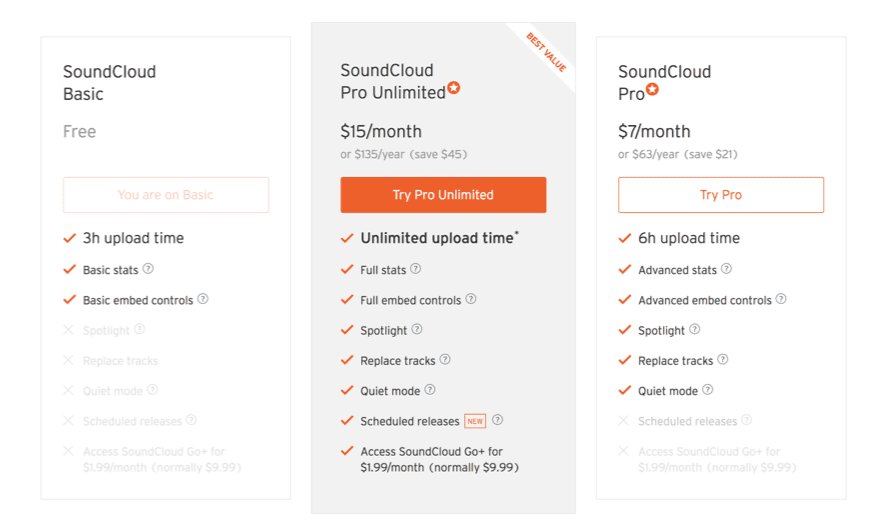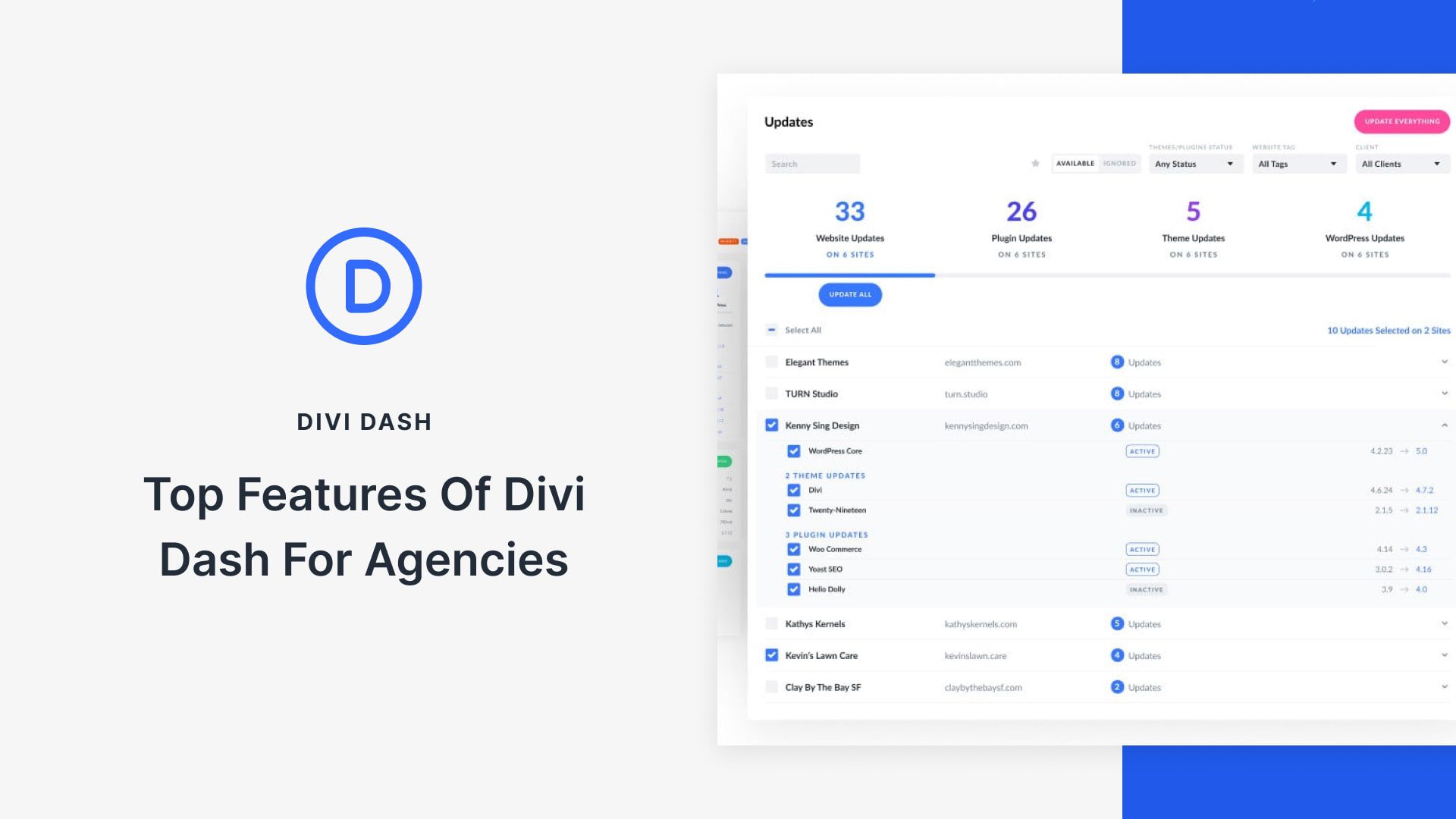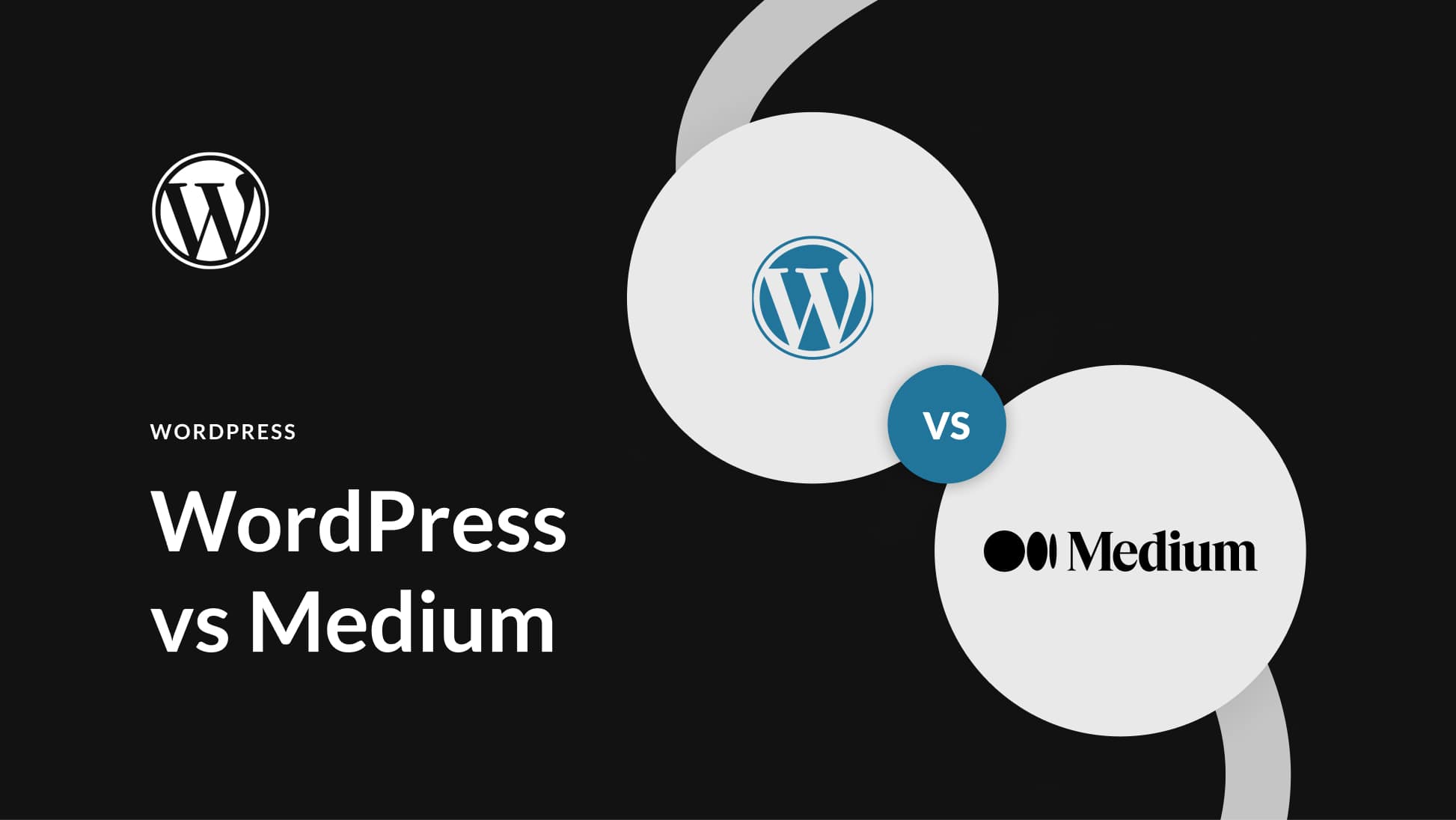SoundCloud comes up when people talk about podcast hosting. Technically, though, SoundCloud isn’t a podcast host like Libsyn or Blubrry, but rather a streaming audio platform. They do host media, both on free and paid plans, and they have a pretty nifty player and subscription model. But, like everything else, you have pros and cons to the service. We want you to be able to make the most informed decision you can, so let’s go ahead and dig into SoundCloud.
Pros for SoundCloud
Probably the biggest positive in SoundCloud’s favor is that it isn’t just a streaming audio platform. It’s a social audio platform. In the same way that people interact with pics and videos on Instagram, that’s how you interact with tracks, albums, and users on SoundCloud. When it comes to music and podcasts both, people love to share what they love. They want to talk about what they love. If your podcast is centered around a community more than an idea, and you get lots of interaction, SoundCloud might be a great place for you to look.
Dedicated Apps
Despite podcasts having been around for a good long time (the term podcast was coined in 2004 by Ben Hammersley of The Guardian), finding a good app for listening to your subscriptions is still kind of a pain. Features many listeners want aren’t included across the board, even in the default, industry-standard Podcasts app that Apple includes in iOS. And Android doesn’t even have a standard podcast player.
While there are free options out there that work well, they all behave differently for different people. Overcast, Pocket Casts, Stitcher, and others all have different UIs, which can obfuscate leaving reviews, among other things. With SoundCloud, if you publish on their platform, your listeners can download your episodes through the official SoundCloud app. (Which solves the Android podcast app problem that plagues so many ‘casters.)
Unlike other podcast hosts, SoundCloud doesn’t rely on simple RSS to disseminate your podcast (though it does that, too, so you can be listed everywhere). It lets listeners connect directly with you, socially and passively. It’s easy for people to find you and interact with you on SC because they use the service like a search engine. Cool, right?
Kind of Pro, Kind of Con
It’s Free
Sort of. I will use this as a transition between the pros and cons because where this one falls will depend on who you ask. I’ve used both sides of the platform, personally. That’s why I put it here in this grey area. I am personally ambivalent about it, and so is the rest of the internet.
Why’s that? Well, because the free version is severely limited. But it works well for a certain demographic of hobbyist podcasters. Here’s the breakdown of their tiers:

SoundCloud Basic (the free tier) is great for new podcasters who don’t know if they can stick with it. 3 hours of podcasting a month is perfectly adequate for weekly shows that run 30-45 minutes each. And as a new ‘caster, that’s plenty. The basic stats are just that. And the embeds are what you’ve probably seen on every SC player ever. However, if you are intending to do more than record a few short shows a month, you will need to upgrade.
The biggest reason to upgrade to either Pro or Pro Unlimited is for two features: replace tracks and scheduled releases. As a podcaster myself, these two features are invaluable. Because I’m human. I have a hectic schedule like you folks do which makes scheduling podcast releases the most important feature I can have. I make a lot of silly, careless mistakes (like maybe uploading the wrong show’s media file to the primary RSS feed. Oops.). Without one or both of these paid features, at some point, your feed is going to go off the rails. Your listeners will be confused. If they’re confused, they may jump ship.
So in this grey area, the near-universal ambivalence comes because the free tier is really good for a lot of people, and when combined with the social features and dedicated, cross-platform app, make SoundCloud really appealing for many people. However, the paywall for two of the most basic features that come with other podcast hosts for free (or at their lowest tiers, rather than the highest) gives a lot of people pause.
Cons for SoundCloud
Uploads are by Time, not File Size
Now, in terms of downsides to SoundCloud, one of the biggest is that they limit your podcasting by hours. Other hosts do it by file size. This is important. For podcasting, it’s okay to skimp on bit rate and sample ate because the quality differential is generally unnoticed. From the NPR website (royalty among podcasters):
We recommend encoding these files at a lower bit rate of 24-64kbps. Also, the sample rate should be a standard kHz rate of 11, 22, 33 or 44 kHz. This will allow your users to download files more quickly and result in lower bandwidth usage for the station. Keep in mind people listen on computer speakers, head phones so higher quality is not appreciated.
They go on to outline the time, quality, and file size ratios, too.
5 minutes encoded at 24kpbs is approximately 1 MB, 48kpbs is approximately 1.7 MB, and 64kpbs is approximately 2.5 MB
30 minutes encoded at 32kbps is approximately 7 MB, 64kbps is approximately 14 MB
1 hr encoded at 32 kbps is approximately 13 MB, 56 kbps is approximately 22 MB, and 64 kbps is approximately 25 MB
When looking at SoundCloud versus Libsyn or Blubrry or others, you can get the same upload of a huge lossless WAV file as you do a minimal 24kbps MP3. As a prolific podcaster, you can run out of time very easily if you’re not on the unlimited plan. A lot of people hate this because you can get a lot more than 3 hours packed into your audio if you follow the NPR standards.
That said, this is what I meant when I said that SC was not primarily a podcasting platform. It is designed first and foremost for music, which is why they limit you by the hour instead of file size. You can get a lot more high quality songs on your account than you can podcasts.
They Might Be in Trouble
Depending on where you look, who you talk to, and what you read, SoundCloud is either in tremendous financial trouble or is doing just fine, thank you very much. When SoundCloud laid off over 40% of employees in 2017, there was a kind of exodus from the platform to other hosts by podcasters. Independent musicians tended to stay, but it became the primary host of far, far fewer podcasters. After all, transferring hosts for your media while keeping the same RSS feed consistent is pretty serious business.
Of course, since the layoffs, the company has said that it’s fine (but every company tends to say that until the very end) and that it has no intentions of closing. However, the general consensus is to use SC as a syndication tool like Stitcher or TuneIn, but use someone else for your primary media host.
I included this in the piece because it is kind of the dark cloud hanging over SC in regard to podcasting. It’s not a maybe-con and a full-on one because I want you to know what you’re going into. Even potentially sinking has made people totally avoid the company, and I don’t want to make it sound like it’s a black-and-white issue. It’s not. No one wants to get caught unaware and lose their work or have to redo it. Proceed with caution and with all the info you can so you can make an informed decision.
Is SoundCloud Right For You?
Maybe. It is absolutely a place you want to include your podcast. It just depends on what kind of needs you have for this to be your main host. For many podcasters, SoundCloud is simply another tool they can use to get their podcast out there. With iTunes being the 800-lb gorilla of the podcasting world, you will still get over 90% of your downloads through there. But SoundCloud does offer a lot of cool toys and gadgets for you. Plus, it’s a good idea to have a few % come from the SC searches. But it’s up to you to take all this info and decide which host is the best. SoundCloud is definitely a viable option, though, especially for the more audiophiliac among you.
What have your experiences been with SoundCloud?
Article thumbnail by Creative Thoughts / shutterstock.com









Thanks for all these thoughts. Dave Jackson, I wonder what you would recommend for as a better alternative to SoundCloud for podcasts? What do you think of Mixcloud?
Soundcloud is really great for a podcast and I have used it for my several projects. But after reading these pros and cons of SoundCloud, it will help me to use it in the more effective way.
Thanks for sharing this guide.
Regards,
Sophia
They do host media, both on free and paid plans, and they have a pretty nifty player and subscription mode
You forgot some points on the con side.
1. They still have not updated their system to use the iTunes tags for seasons, episodes numbers, etc that came out in 2017.
2. Advertisers may not want to sponsor your show when you use Soundcloud as you can game their stats (Google the phrase “buy Soundcloud plays” and you’ll see what I mean). Case in point from Podtrac, “Effective April 1, 2018, Podtrac will discontinue support of the portion of SoundCloud traffic which is not RSS delivery. This means that traffic via the SoundCloud app and website (which does not pass through the Podtrac measurement system) will no longer be included on your Podtrac Dashboard, as Podtrac is unable to verify this non-RSS delivery. RSS delivery of SoundCloud hosted media will continue to be measured and displayed on your dashboard.”
3. If you embed a SoundCloud player on your website and pause the track. A giant orange button prompts your listener to “Hear More On Soundcloud” and there is no way to resume play without going to the Soundcloud Website.
Soundcloud is a music site and they dabble (poorly) in Podcasting
Thanks for this article. Very insightful and helpful. I use SoundCloud (unlimited) to house all of the content for our voicEd Radio initiative. Currently, we have just under 1000 tracks of content uploaded. I can then embed tracks, playlists, etc on our website and offer content creators the same ability.
The one downside that I’ve found. Soundcloud provides only one RSS feed per account. That means that for a service like ours, where we have close to 40 separate podcasts running under the voicEd Radio banner, I can’t publish to traditional RSS-catcher services.
My workaround has been to pay for an upgraded Spreaker account that allows me to publish separate podcasts and assign an RSS feed to each.